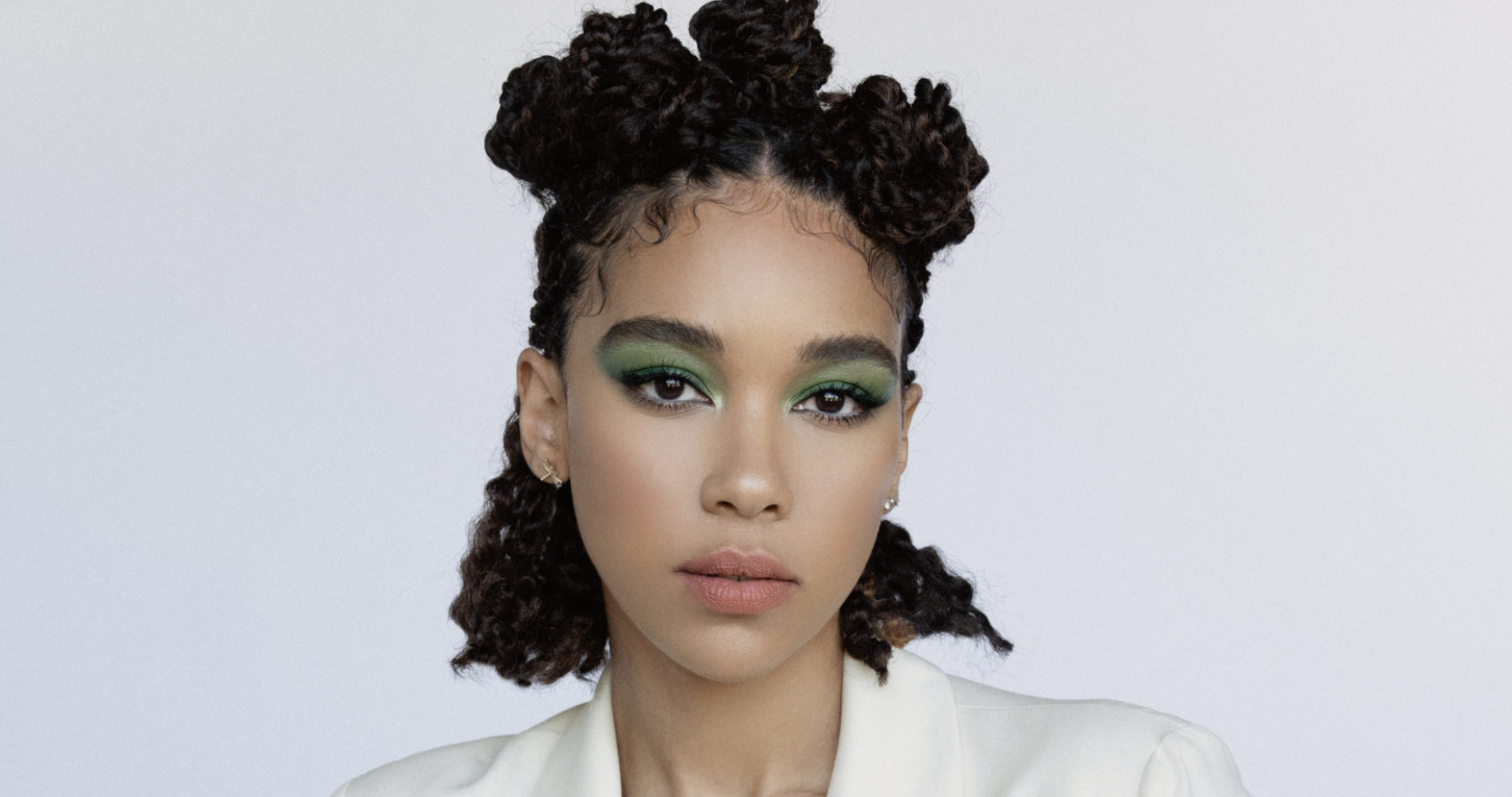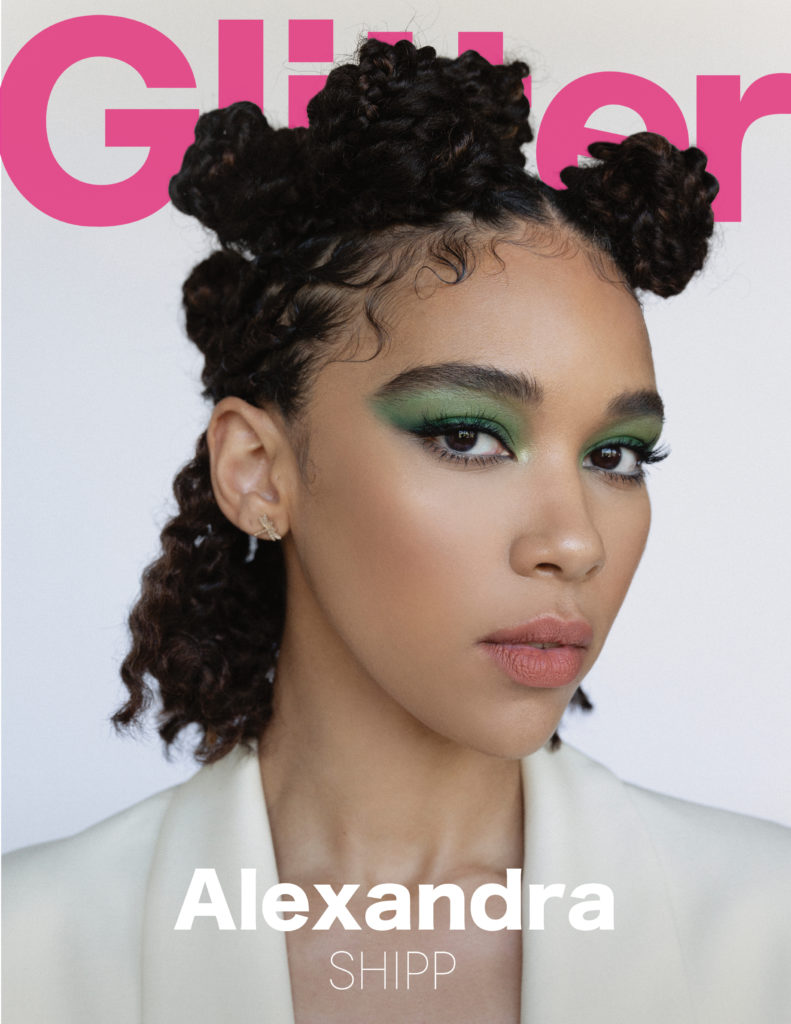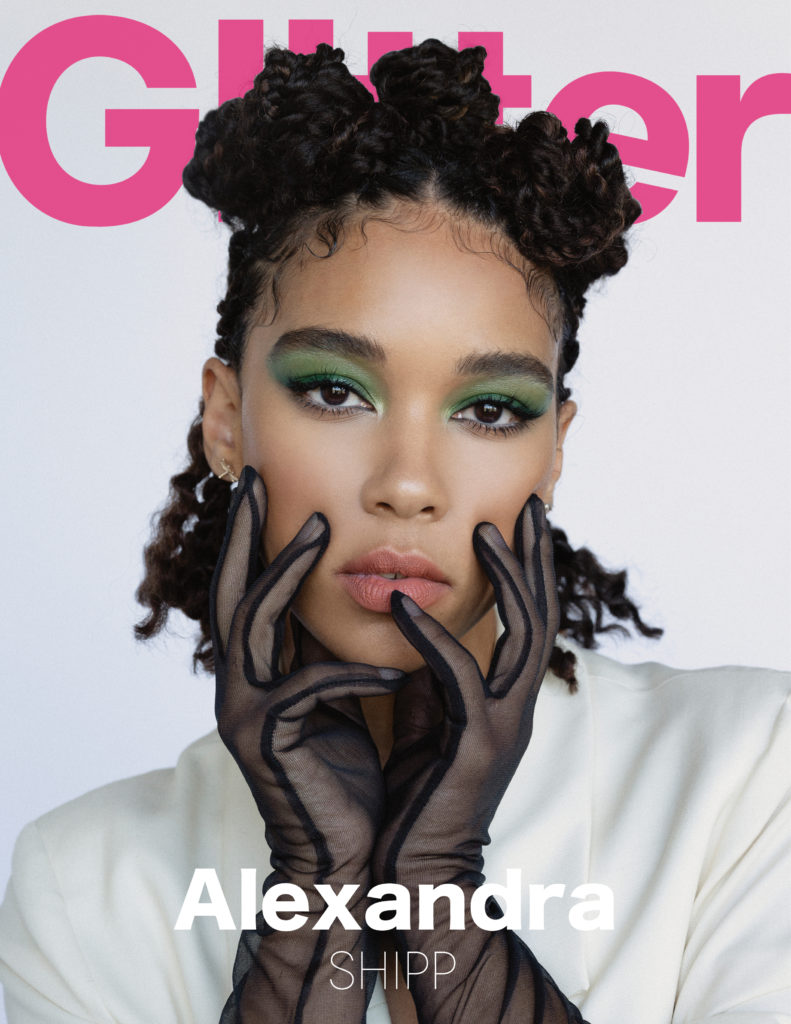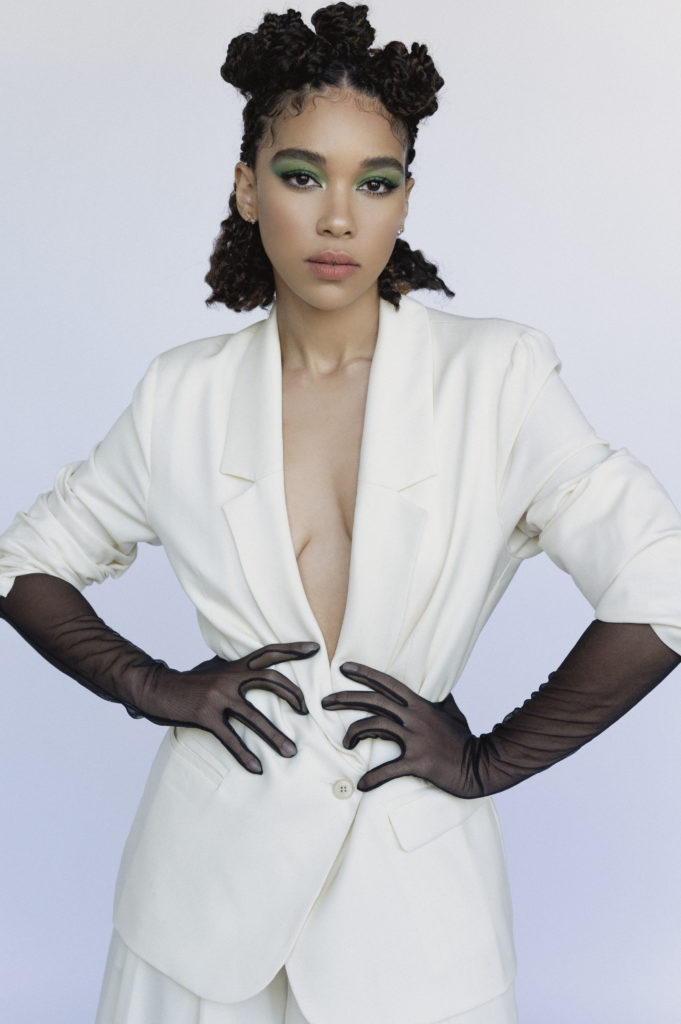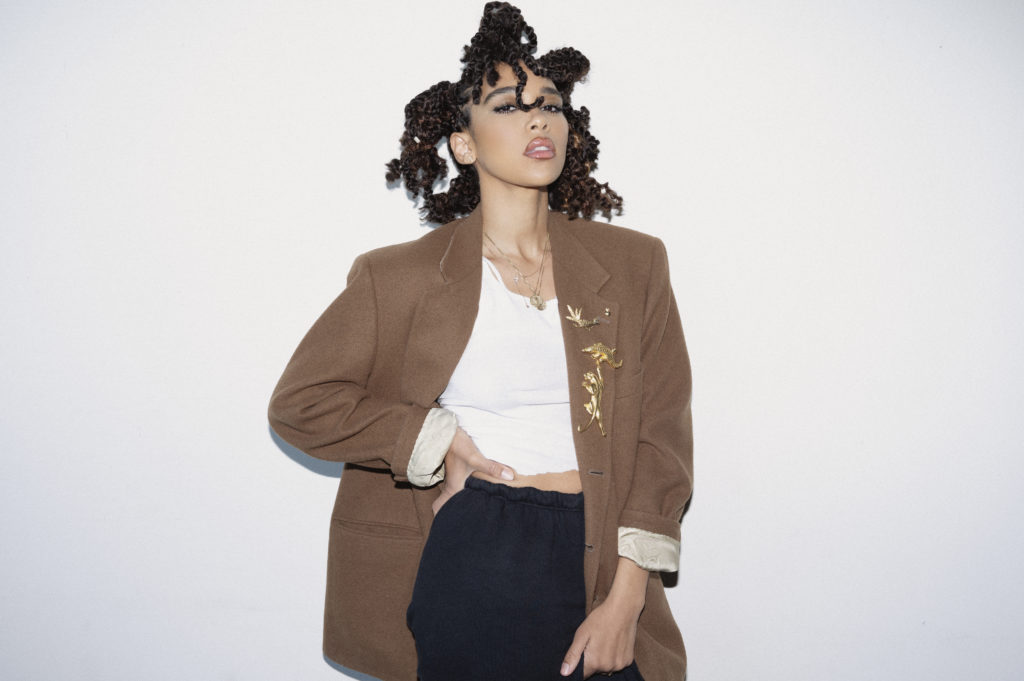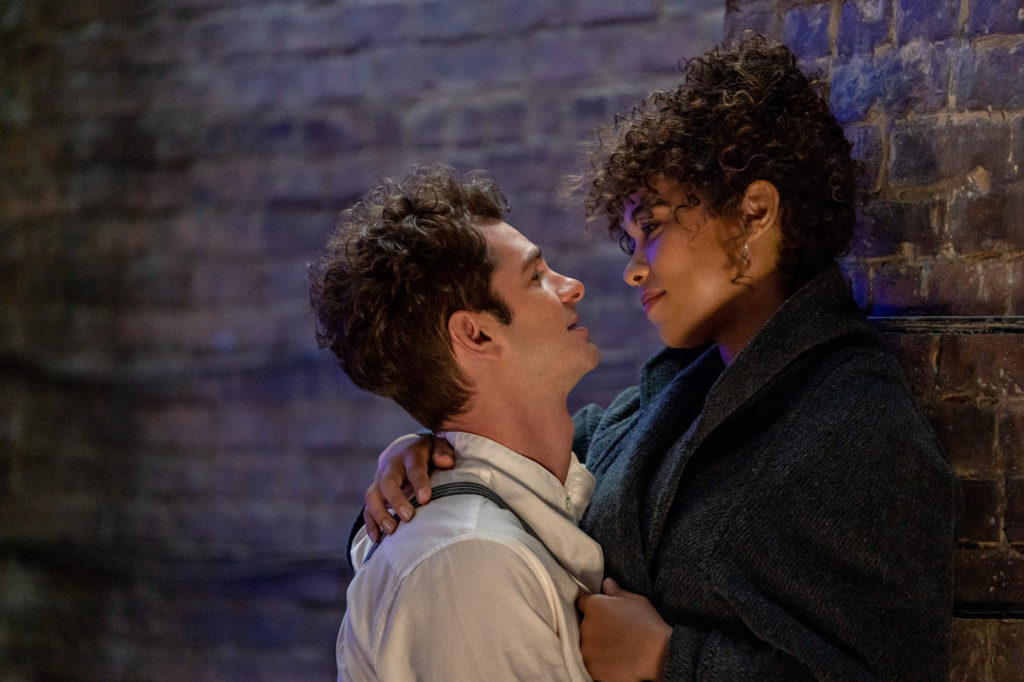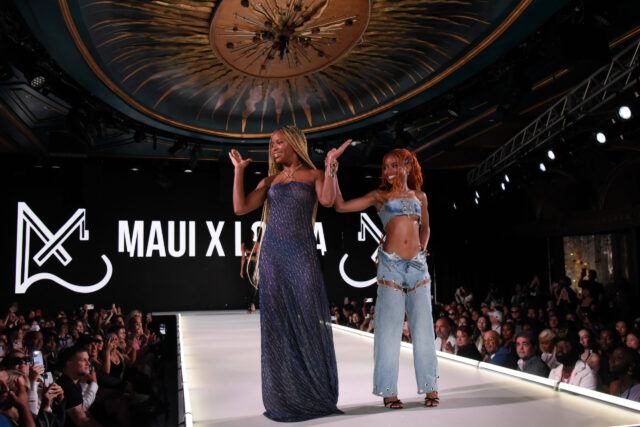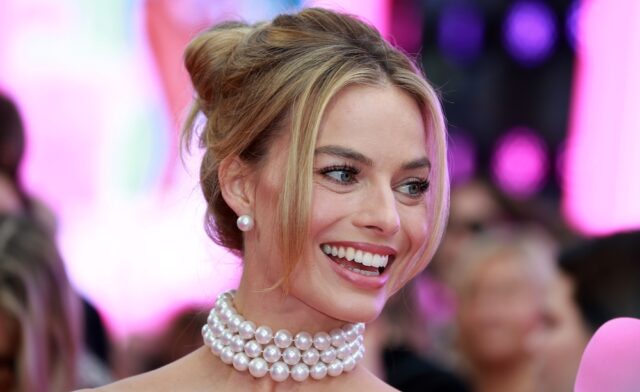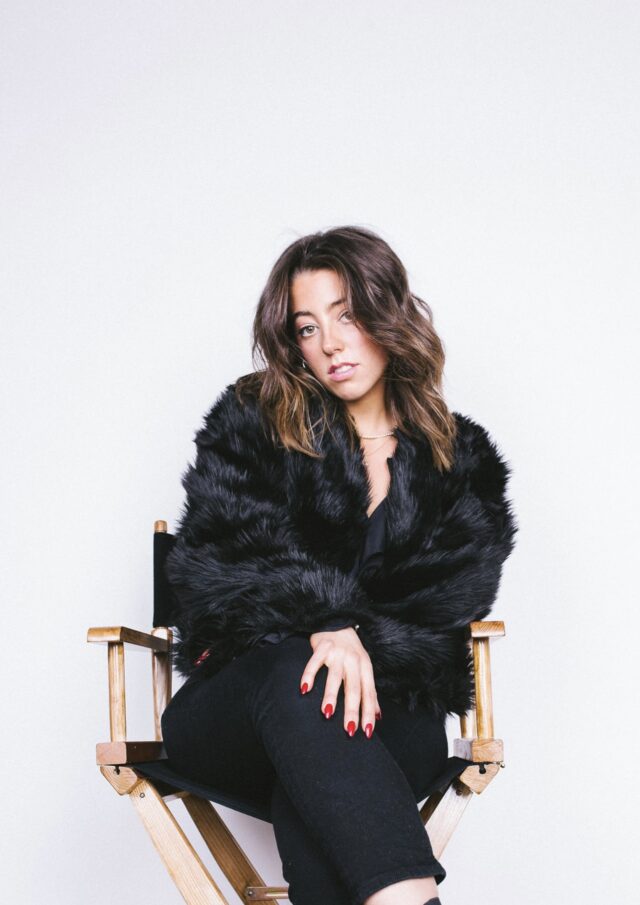DIGITAL COVER: Alexandra Shipp on Her New Film ‘Tick, Tick… Boom!,’ Self-Love, and Mental Health
Alexandra Shipp talks new musical film Tick, Tick…Boom!, forging ahead as a Black and female actress in the entertainment industry, her advocacy for mental health and reproductive rights, and more.
Alexandra Shipp has come a long way from her House of Anubis days until now, with roles in Drumline, Shaft, X-Men, Apocalypse, Love Simon, and more. The brilliant and talented 30-year-old actress can be seen in the new Lin-Manuel Miranda film, Tick, Tick…Boom!, where she plays Susan, the girlfriend of Jon Larson, a young theater composer who’s waiting tables at a New York City diner while writing what he hopes will be the next great American musical. This beautifully written storyline delves deep into powerful subject matter on living your dream, mortality, the AIDS epidemic, inclusivity, friendship, and centers on the love and relationship of a struggling couple living, working, and creating as artists in the lower east side of 90s Manhattan.
Alexandra’s portrayal of Susan, a modern ballerina, is simply flawless, with her combination of singing, acting, and dance, making her a triple threat in Hollywood. Shipp has been singing since “she could talk” and starred as Aaliyah in the Lifetime biopic about the late singer. According to Shipp, the character of Susan is a young woman with a mind of her own. “She’s Jonathan Larson’s girlfriend, but she is also a modern ballerina, a strong independent woman who is madly in love with an artist,” the actress describes. “I think that is the most beautiful rise before the fall, trying to pin down someone like Jonathan Larson.”
Tick, Tick…Boom! will have viewers overcome with emotion as the intimate story of Larson, the creator of the hit Broadway musical, Rent, is brought to life on the big screen. Larson was a brilliant talent taken too soon at the age of 35 in the winter of 1996. The cast, which includes Alexandra as Susan, and Academy Award nominee and Tony Award winner Andrew Garfield as Jon himself, is one that you’ll never forget. The pair have this natural chemistry and magic that lights up the screen. The duo is supported by Robin de Jesús, Vanessa Hudgens, Joshua Henry, Bradley Whitford, and Judith Light.
Directed by Lin-Manuel Miranda, who is making his directorial debut, the upcoming musical can be seen on Netflix and in theaters on November 12 and premieres on Nov 10 at the AFI Festival. Showrunners include producers Ron Howard, Julia Oh, and Brian Grazer, as well as writer Steven Levenson.
Alexandra sat down with Glitter to discuss the making of Tick, Tick…Boom!, her thoughts on what still needs to change in Hollywood to level the playing field, her advocacy for women’s rights and mental health, and so much more.
NIKKI: Thanks so much for taking time out for us at Glitter. I believe we spoke to you many, many years ago in your House of Anubis days.
ALEXANDRA: Oh, my gosh. I love! Full circle moment, babe.
NIKKI: Congrats on your journey. You’ve been super busy in the industry with everything from Drumline, Shaft, X-Men now Lin-Manuel’s Tick, Tick… Boom!, which I absolutely loved. You were brilliant.
ALEXANDRA: Thank you.
NIKKI: You’re welcome. So how did you first discover your love of the arts, making you this triple threat? Singing, acting, dancing, writing, playing guitar; you’re nonstop. When did all of that begin?
ALEXANDRA: I think it started literally right when I came out of my mother’s womb. She loves telling stories about me, putting on shows with my Beanie Babies, and coming up with full storylines. When we had a family computer, I started writing. I loved creative nonfiction novels. So I would write things, and I would write about serious things. Like it was a little weird. Like, I love the drama, you know. People are like, “I was singing before I was talking,” but I definitely was. When I discovered Bjork, I felt really bad for my family. It was like Bjork and The Cranberries at the same time, like I was hitting those notes trying to find the breaks, baby. I felt so bad for them, and I just couldn’t stop. My mom put me in voice lessons when I was eight. By the time I was ten, I was doing theater, and there was just no stopping. I knew exactly what I wanted to be when I grew up. And my mom was like, “OK, let’s go.”
NIKKI: Did you know the back story of American composer Jon Larson before auditioning for this role in the film?
ALEXANDRA: I genuinely had no idea. I knew, like the surface level that everyone kind of knows, which is he wrote Rent. I initially thought that he died of AIDS, which is a common misconception. To find out that he died of an aortic embolism, I was like, man; he was so scared that he was going to die of AIDS. Everyone at that time was, and the fact that he didn’t is some weird, sad, twisted irony, you know. Especially so suddenly, I genuinely had no idea. So when I got the part, honey I dove deep. I had to, and I was just like, “This is so cool.”
NIKKI: What can you tell us about your role as Susan and how you prepared to submerge yourself in this emotional project and character?
ALEXANDRA: My role as Susan is that I am a modern ballerina living in New York City, which is a dream. When I say that I’m like, “What if I did that? That would be so cool.” Although I cannot dance. I was really nervous because I was like, “Girl, you cannot dance like this. It’s going to be really bad. You’re going to go out there, and you’re going to be like, was the robot ‘not’ modern dance?” I not only started studying up about Jonathan Larson and sent over some references of books that I could get to, but I also really started diving deep into modern dance. That was my main goal, figuring out how to move my body. I had to be able to pick up choreography. I was not very good at it. I did some choreography in Aaliyah; I’m proud of the work I did with that. But I have not danced since then. So I was really nervous. And so I got with a private coach, Melissa Schade, here in L.A. I love her. She is one of my dearest friends now because she really got me from not knowing anything about dance to really understanding, not only the language but finding my body and then finding my own way of doing things. Every dancer is different. And I would kill myself, thinking I have to look like a dancer because I’m playing a dancer. And I was really stressing over all the little technical things, and she really kind of broke me through it. We got up to like three hours a day on top of two-hour fitness workouts because I also wanted to physically look like a ballerina. So I was doing about five hours of training a day for almost two months before I left for the job. Then when I got to New York and started working with Ryan Heffington, I was dancing about six hours a day, and I was just in it going boom, boom, boom, putting everything together, breaking everything down. I really stressed the fact that I wanted private. So I needed private lessons on top of that. If it was my off day, I didn’t care that it was my off day. I was like, “You don’t even have to dock the hours, you guys. I don’t care. This is literally for me. I need to be dancing every day.” And they were like, “OK, wow, this girl’s crazy, but let’s do it.” But guess what? Towards the end, she looked like a daaannnsssaaa! (NY accent)
NIKKI: Yes, you did. It came off beautifully. So congrats on that. Outside of the incredible dance scenes, you have these amazing vocals. Can you give us a little teaser on what fans can expect in some of these vocal scenes?
ALEXANDRA: You know, what’s really exciting about this movie is that we get to go into these beautiful subject matters, deep, beautiful subject matters with such power. I really appreciated the beauty of these songs, not only how they’re written, but how they’re composed. I get to have this monstrous, fabulous ballad with one of my best friends. Like the fact that Vanessa and I both got this job, babe. We were like, “Whaaaaat?” We both went apeshit. We lost it. I was like, “I want to work with you for the rest of my life. I can’t wait to spend the rest of my life with you. I’m so in love with you; this is ridiculous.” Like, we are so in love with each other. So we get to sing this big, beautiful ballad. In our off time, we would just like to sing it, the two of us. It is just really cool. I get to have this big, beautiful ballad with her, and it just talks about opening your eyes and seeing the love that’s in front of you. I think that that’s so important, especially in today’s day and age. There’s a lot of shit going on in the world. If we just open our eyes every now and then and look at the beauty that’s in front of us, we can really appreciate what’s going on right in our present, right in our lives, right there around us, whether it’s people, places, things, situations. There is real beauty in this world. If you just open your eyes to it and you don’t stay locked inside.
NIKKI: What was it like working alongside such phenomenal filmmakers, such as Lin-Manuel, directing and producing, and also Ron Howard producing as well?
ALEXANDRA: Yes, and having Brian Grazer there checking everything out, I mean, it was so nerve-racking. I was so nervous. One day I was doing a private dance rehearsal, working on my solo, which is towards the end of the film, and Ron Howard just pokes his head in! (laughing) I had a whole freakout moment. He was like, “Hey, you look great. This is going so well. You having fun?” I was just completely like, “uh-huh, I’m fine. You’re fine. We’re fine. Everything’s fine!” It was really cool. Seeing them at, like, rehearsals and stuff was just always really fun. But working with Lin is one of those experiences that I will treasure for the rest of my life. He is so brilliant and so kind and so funny. He has this kid-like excitement every time he comes on set. He is so passionate about what he does. It’s really beautiful because I, in turn, I’m just as passionate. I want to do a really great job. I love the intricacies of every aspect of what we do; from my motivation within a scene, to why the DP is lighting me a certain way. There is just so much that goes into what we do. Lin is like this fabulous conductor in front of an entire orchestra just putting these pieces together. It’s such a joy to watch, and it’s such an honor to be a part of his first time in that role because you can really see the translation from stage to film. It’s not all that different; it’s just really cool to watch. Going through character work with him and building out who this woman is, it was just such a pleasure. I’m just like, so grateful for the opportunity. I did not think that I was going even to get the job. I was like, “Why would they want little oh me? But no, [they were like] I want you.” You know, it’s funny for the audition they sent me the song, “Come to Your Senses,” and they were like, “They want you to do this part of the song, of course, the big finish. Every time you audition for a musical babe, you have to sing the big finish start at the high notes.” I was like, “OK, OK, who’s directing this?” “Lin-Manuel Miranda.” I was like, “Say less.” I sent in the most R&B version of “Come to Your Senses.” I was like, “Oh, I’m singing for Lin? Never mind, I’m not going to try and do some Broadway moments (singing), like, no, I’m a give him the sauce.” Apparently, he loved the sauce and wanted to double-dip. And I was like, “Let’s go. That’s so cool.”
NIKKI: Well, your excitement shows, it comes across on screen. So what’s one memorable moment that you have starring opposite Andrew Garfield?
ALEXANDRA: In our farewell scene, at the end of the movie. Andrew is just ridiculously talented and such a beautiful human being. It’s not on my coverage… we’re shooting, it’s over my shoulder, and I’m just sobbing. I am just sobbing at our goodbyes. That was actually my audition scene with him when we tested together. So there was so much in it that I had prepped almost a year prior, and then to get on set and to do it with them; he just got me. I love acting opposite really incredible actors that I admire because I’ve learned so much because acting is not just about showing the emotion, it’s about tricking you into believing the emotion. In portraying that in a way that you believe it so much that it is actually real, specifically for the performance and the audience, it was so real. I felt like I was saying goodbye to the love of my life; I just love him. That’s something that I think I’ll always remember and cherish, is just acting opposite him and not even being on camera. I didn’t have to cry. I had to be present in it, of course. But like, I had no idea just how deep down the rabbit hole he was going to leave me with that. Then when it turned around to me, I had all my work already done. I was like, “Let’s go.”
NIKKI: The film touches on so much, including the AIDS epidemic, the love of the arts, loss, and survival. Is there anything that you learned from the film or about yourself from Jonathan’s story after rapping or throughout the project?
ALEXANDRA: Yeah, when we came back into it, it was just after George Floyd had died. We got shut down for COVID, and then towards George Floyd died, Breonna Taylor died. I mean, it was just an onslaught of injustice. Not to mention in the middle of a pandemic. I always ask myself, “Why am I doing this film? What is the point? What am I trying to say?” I like to choose jobs based on that question. “Why am I doing this? Do I have to do it?” Because at times, it feels superficial. I could be doing something else with my life. I could be volunteering here. I could be teaching children there. “Why am I doing this?” I think that it’s a movie that talks about not knowing what or who’s going to be next. You never know what’s next. In a day and age like the one we’re in right now, it is possible that anyone could be next. You could be next. Someone you love could be next; someone you love, who loves someone else, could be next. My best friend lost his grandparents in the same week. You never know. That’s what this movie is about, is about cherishing the people around you because you never know. I was like, “That’s why we’re doing it.” That’s something that I can not only get behind but believe in and worship, it opened my eyes so much because I was like, “You’re not just acting. You’re appreciating, and you’re teaching your audience about appreciation.” That just made me grow as a human being and be able to portray that and push that narrative forward for as many people that see this movie. You know, if I can affect that, if I can change that within someone sitting in that audience, then I feel like I’ve done my job, and I’ve done something good for the world through art. And that, I feel like, is just so invaluable to any artist, you know.
NIKKI: You came out this year as part of the LGBTQA+ plus community. Congrats on that. What was that like for you to finally live your truth and to be able to share that with the world?
ALEXANDRA: It’s so interesting, people that I know and the people that are in my life, everyone knows I’m gay. It’s not like I was in the closet. Once I realized exactly what it was for me; I had to tell everyone. My mom was like, “Alex stop.” And I was like, “No, you don’t get it. Like, I am gaaaay.” But I’ve never felt like it was anyone’s business outside of the people around me and who know me or even who have met me in real life. Then I was talking about it with someone that I was dating at the time and they were like, but you understand that, like, this could be inspirational for someone who is a queer woman of color or just queer in general to see you in a place in which you’re a lead character. You’re at the top of the cast with everyone, you know; this could be monumental for them to see and to be inspired by. I was like, “Well, yeah, I’d never thought of it that way.” Also, I was scared because if I had come out ten years ago when I was in House of Anubis, I would have been typecast. The world was not the same way. Not only would I be playing the best friend, but it would be really hard for me to play the girlfriend, because every character, recently it’s changing, but the majority of the time, the lead character’s a man. So everyone would be like, “Oh, well, she’s gay. She can’t do that. No, no.” I didn’t want to be put in a box. I don’t want to be put in a box in any of my roles. Susan is originally white. She is a real person, and she is white, and I’m occupying that space, which is a form of activism and I love it. But also, me being a queer Black woman in that space is a form of activism. If I really do want to call myself an activist, I have to be true to what that is and what that means. So I was like, “OK, let’s do it. Just post it.” My finger was like hovering over the share button, and I was like, oh… because although it’s no one’s business who I’m attracted to or who I sleep with, you know. At the same time, I was like, “It’s not just about my relationship with people who are queer, but it is community.” To allow people to understand that I’m not only a member of their community, but they’re a member of mine was really important to me. I wanted people not only to see my truth but in seeing my truth, see theirs. So I hit share.
NIKKI: Glad you did. What changes do you feel still need to be made in Hollywood regarding inclusivity of race and gender behind and in front of the camera?
ALEXANDRA: Well, I definitely think that there needs to be more women in a place of power that’s not only in the producer and directors chairs but heads of departments. I think that that’s super necessary. There also needs to be more people of color on set. It is hard, and I’ve done it my entire career to be on set and be like one of five and to not see myself and therefore not see and feel the community within that. There were a lot of brown faces on the set of Tick, Tick… Boom!, and I didn’t feel other. I didn’t feel alone, and I felt safe within that community—lots of women. Our DP is a woman. Our executive producer is a woman. Our first AD is a woman; that meant so much, not to mention women of color. That’s huge; we need to see more of that. I need to see more of that because that makes me feel more comfortable on set, safer on set so that I can actually do my job and not feel weird. The thing about acting is you separate production from performance, and it’s easier to do that when you have the inclusivity of that. Also, to tell a woman’s story, you have to have that conversation with a woman. Very rarely do you get someone like Lin who is able to have those conversations in a beautiful, compassionate way; he loves women. You can tell that he loves women because of the way that he portrays them, the way that he writes them. The conversations that we have about Susan’s struggle, about not feeling the love from Jonathan or feeling secondary to his life and his passions, and having those deep conversations with Lin, he really got it. He really understood. But it was also beautiful to have those conversations with the other women on set and to really dive deep into that and be like, “Girl, you know, I had an ex-boyfriend do the same shit,” and like it’d be real, real, you know. I want to see more of that. I want to see more of that for myself and other actresses and actors who are on set. I want to see more of that. We need to see more of that.
NIKKI: Definitely. What are your thoughts on reproductive freedom? I know you’re outspoken on social about that and what’s happening in the news right now.
ALEXANDRA: You know, it’s a really troubling time. We all joke about Handmaid’s Tale, but I see that coming in many ways, obviously not as extreme, but I see that coming in many ways within our government. I post a lot about the fact that if they’re coming for women’s rights, they’re going to come back for queer rights. Texas is going after trans youth. They’re going after women’s reproductive rights. They’re going after voting rights. It’s very, very scary how far back we’re being pulled. It’s interesting because, with politics, it’s a rubber band effect, right? We move, we move ahead. We’re ten steps ahead with Obama, and we’re pulled back with Trump. We’re ten steps ahead with Joe Biden and Kamala Harris, then we’re pulled back by Texas. It’s just so interesting to see that ebb and flow in our world. It frustrates me so much because I want to see that progression. I want to cut that rubberband so bad because it affects our children, it affects our babies. If we want to see a change in the world, we have to make this world better for our babies. We have to educate our children. Children are so educated these days just based on the access to information with social media. Before it was the news, it was newspapers, and it was our parents and libraries if you had access to them. But that was literally it for my generation. This next-generation, I mean, Gen Z, they’ve got all the information. I’m like, “You kids are smart. You’re talking circles around me.” I don’t know what you’re saying in this other generation, the ones that are under ten years old right now; they are really going to get it, dude. They’re going to heal our ancestral trauma in ways that we could have never seen possible. That change needs to happen when it comes to these anti-abortion laws; they’re a last-ditch effort for these old white men to control women. Once that generation ages out of a place of power, I know for certain that we are going to change the world. We’re going to at least change America for the better. But they’re really trying right now, and they’re trying us. We can’t live in a world of resentments, but at the same time, I’m very resentful of everything that’s happening. How dare anyone tell a woman what she can and can’t do with her body?
NIKKI: Yes.
ALEXANDRA: Six weeks?
NIKKI: Yeah.
ALEXANDRA: I don’t know anything within a six-week period.
NIKKI: Yes, I agree. The ten thousand dollars bounty is incredible.
ALEXANDRA: My God. What are we talking about? It’s more strenuous than punishment for rape. Then the Governor goes, “Don’t worry, we’re going to end rape.” I’m like, “What?”
NIKKI: That was bizarre.
ALEXANDRA: You’re literally talking about something that’s been happening since the dawn of man, and now you’re going to change it for the better. Like, what are we talking about? That makes no sense. I personally am a huge fan of the rhetoric that if we’re going to go after abortion rights, we should make vasectomies mandatory for single men, reversible vasectomies for men, because that’s how you eliminate unwanted pregnancies—one hundred percent. But good luck, because that puts us in that Handmaid’s Tale world.
NIKKI: Yes. Very scary.
ALEXANDRA: I don’t want to force men to do that. So don’t force women to do that.
NIKKI: You’ve also been outspoken on mental health, on social media. What advice do you have for those that may be struggling?
ALEXANDRA: My thing about mental health is, if I were not on medication, I would not be here today. There is a lot of stigma against people who are on medication. But there’s something to say about a chemical imbalance. When I first got on medication, I was at, in my mind, the height of my career. I had just gotten X-Men. I was in a great relationship. Well, I thought it was, you know, you always think it’s good, and then it ends. But I thought it was a really wonderful, beautiful relationship. I was living with my best friend from high school, and we have the dopest department, and everything was coming up, Alex. But I wanted to die. And that is a chemical imbalance. I want to take away the stigma from medication. I would love for medication to be more accessible and less expensive for people as a whole, Americans specifically because that’s my country, and that’s what I can affect with my voting rights. But medication, it’s OK to be on medication. If a medication helps you get out of bed in the morning, babe, do it. Also, talk to a doctor, have a doctor. I have a psychiatrist and a therapist. I talk to my therapist all the time. That’s my girl. But there’s such a stigma around medication. There doesn’t need to be. If I didn’t have medication, I wouldn’t be here. I wouldn’t be able to even be sitting here having a conversation with you Nikki. I am so fortunate for my drugs, and I am so grateful for my access to them. I just want to say that it’s OK to be on medication; it is OK to have to take a pill. Now, there’s no cure for depression. There’s no cure for these things, but there is maintenance. If you’re willing to do the work, it gets better; life gets better. If you need some help to do that, you need some help to do that. Support your friends who are on medication, love them, don’t judge them. Be like, “I’m so happy that you are taking care of yourself because I really want you here.” Because who knows, if you’re not on medication, something happens to you, you self-harm in some sort of way. Then the world loses something or someone that could have done some really great shit on this planet.
NIKKI: Glitter started its celebrity Self-Love Campaign way back in 2015; what does self-love mean to you?
ALEXANDRA: My number one when it comes to love language is time spent. That’s because I’m always away on a job. I miss weddings, birthdays, hangouts, all of it; you name it. But I also miss that stuff within myself because I try and spread myself thin. So time spent is not only a love language for my friends, but it’s a love language for myself. I like to take time to get a massage, read a book, just have a mental health day and do things that I want to do. Self-love, for me, is time spent with me, checking in with myself. “How you doing Alex, is everything OK? What could you possibly do to make things easier for yourself or better for yourself? What does that look like? How can you take care of yourself better? Let’s do that today.” That’s self-love.
NIKKI: Absolutely. Alexandra. It was an absolute pleasure to chat with you today, so thank you again, and looking forward to what’s next from you and hopefully talking again soon.
ALEXANDRA: Nikki, this has been so fun. I am so grateful that we were able to do this. This full-circle moment is just like, it’s so great for me. So thank you for sitting down with me.
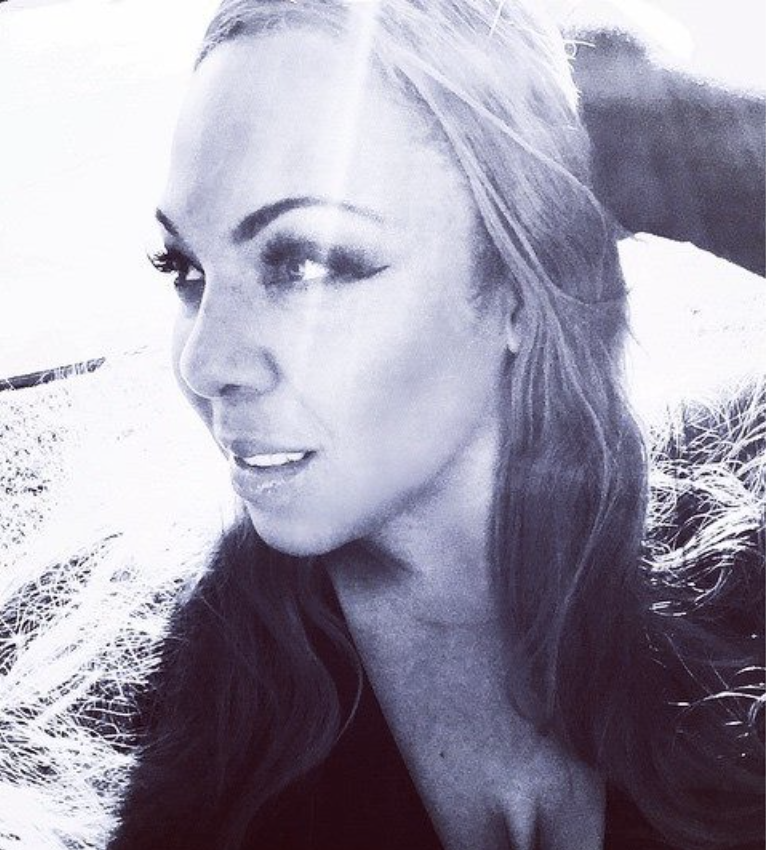
Award-Winning Publisher, Writer, Critic + Journalist || Tweet me @nikkifowler28

